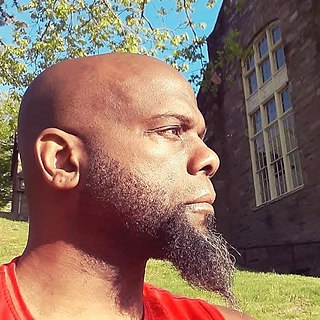Marilyn Hacker is an American poet, translator and critic. She is Professor of English emerita at the City College of New York.
Curtis White is an American essayist and author. Most of his career has been spent writing experimental fiction, but he has turned recently to writing books of social criticism.

Raymond Federman was a French–American novelist and academic, known also for poetry, essays, translations, and criticism. He held positions at the University at Buffalo from 1973 to 1999, when he was appointed Distinguished Emeritus Professor. Federman was a writer in the experimental style, one that sought to deconstruct traditional prose. This type of writing is quite prevalent in his book Double or Nothing, in which the linear narrative of the story has been broken down and restructured so as to be nearly incoherent. Words are also often arranged on pages to resemble images or to suggest repetitious themes.
Ronald Sukenick was an American writer and literary theorist.
Richard Cory Kostelanetz is an American artist, author, and critic.

Michelle Richmond is an American novelist, essayist, and short story writer. She wrote The Year of Fog, which was a New York Times bestseller,The Marriage Pact, which was a Sunday Times bestseller, and six other books of fiction.

Lance Olsen is an American writer known for his experimental, lyrical, fragmentary, cross-genre narratives that question the limits of historical knowledge.
Susan Steinberg is an American writer. She is the author of the short story collections The End of Free Love, Hydroplane and Spectacle. Her first novel Machine: A Novel, revolving around a group of teenagers during a single summer at the shore, employs experimental language and structure to interrogate gender, class, privilege, and the disintegration of identity in the shadow of trauma.
Steve Katz was an American writer. He is considered an early post-modern or avant-garde writer for works such as The Exagggerations of Peter Prince (1968), and Saw (1972). His collection of stories, Creamy & Delicious (1970), was mentioned in Larry McCaffery's list of the 100 greatest books of the 20th century where it was named "The most extreme and perfectly executed fictional work to emerge from the Pop Art scene of the late 60s."

Leslie Scalapino was an American poet, experimental prose writer, playwright, essayist, and editor, sometimes grouped in with the Language poets, though she felt closely tied to the Beat poets. A longtime resident of California's Bay Area, she earned an M.A. in English from the University of California at Berkeley. One of Scalapino's most critically well-received works is Way, a long poem which won the Poetry Center Award, the Lawrence Lipton Prize, and the American Book Award.
Cris Mazza is an American novelist, short story writer, and non-fiction author.

Jennifer Natalya Fink is an American author working in experimental feminist and queer fiction. She is best known for her novels Burn, V, and The Mikvah Queen, which was nominated for the Pulitzer Prize in 2010. Her novel, Bhopal Dance (2018), won the FC2 Catherine Doctorow Innovative Fiction Prize in 2017.
Susan Neville is a short story writer, essayist and professor, known for her work exploring Indiana and the Midwest.

Avant-Pop: Fiction for a Daydream Nation is a Fiction Collective Two book published by Black Ice Books in 1992 edited by Larry McCaffery. It is a collection of innovative fiction, graphic art, and various unclassifiable texts written by some of the most radical literary talents who McCaffery classifies as Avantpop. In his introductory chapter, McCaffery calls these writers "a new breed of pop-culture demolition artists". These writers include cult figures such as Kathy Acker, Samuel R. Delany, Harold Jaffe and Derek Pell, as well as young new writers such as Euridice, Mark Leyner, and William T. Vollmann.
Aimee Parkison is an American writer known for experimental, lyrical, feminist fiction. She has won the FC2 Catherine Doctorow Innovative Fiction Prize as well as the first annual Starcherone Fiction Prize and has taught creative writing at a number of universities, including Cornell University, the University of North Carolina at Charlotte, and Oklahoma State University.
Marianne Hauser was an Alsatian-American novelist, short story writer and journalist. She is best known for the novels Prince Ishmael (1963) about the foundling Kaspar Hauser and The Talking Room (1976), an experimental novel about a pregnant 13-year-old raised by lesbian parents. She was the recipient of a Rockefeller Grant and a National Endowment for the Arts grant.
Jonathan Baumbach was an American author, academic and film critic.

Marc Anthony Richardson is an American novelist and artist. He won an American Book Award and a Creative Capital Award.
Vi Khi Nao is a cross-genre writer from Long Khánh, Vietnam. She is a graduate of the MFA program at Brown University, where she received the John Hawkes Prize, the Feldman Prize and the Kim Ann Arstark Memorial Award. She was the 2022 recipient of Lambda Literary's Jim Duggins Outstanding Mid-Career Novelists' Prize.

Vincent Czyz is an American writer and critic of Literary fiction. His work often explores mythological motifs, religious themes, and dreams as a substrate of reality.








